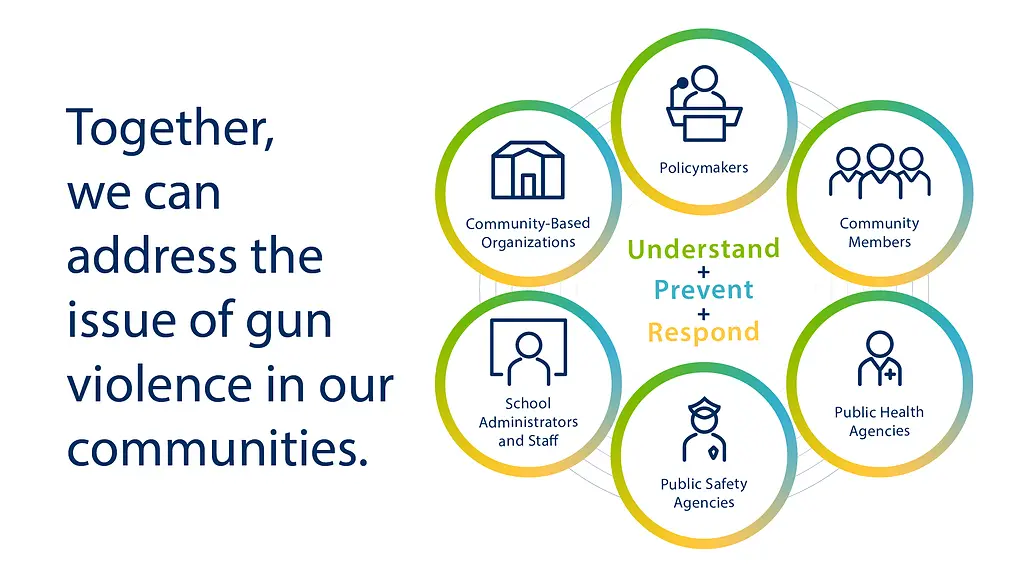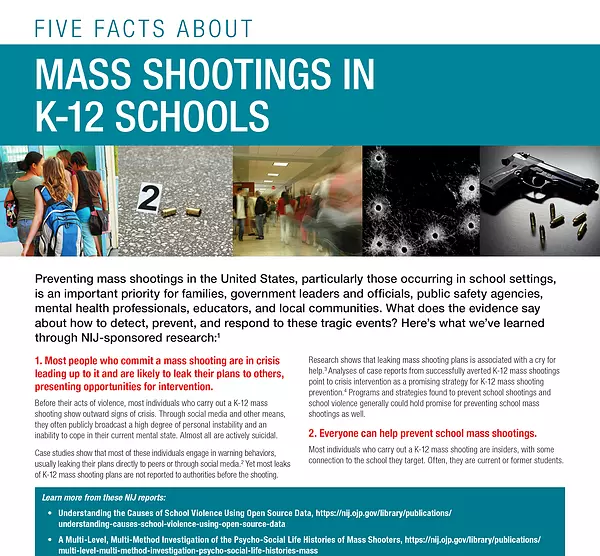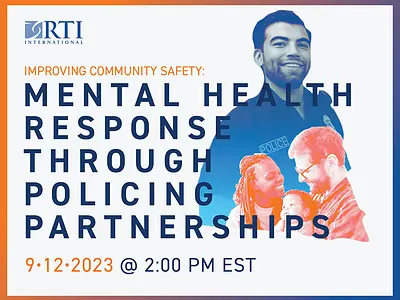Building the Evidence Base Around Strategies to Reduce Firearm Violence
Firearm violence—which includes deaths and injuries that are unintentional, intentionally self-inflicted, caused by interpersonal or mass violence, a result of legal intervention, or of undetermined intent—is among the five leading causes of death for people aged 1 to 44 in the United States. According to the Centers for Disease Control and Prevention (CDC), in 2021, nearly 49,000 deaths in the United States were from firearm injury, including nearly 21,000 homicides and more than 26,000 suicides. The homicide and suicide rates in 2021 were the highest annual rates documented in the United States in the past 30 years.
Firearm violence is an urgent public health and public safety problem that affects communities, schools, and residents throughout the United States. A comprehensive approach to address these multiple types of firearm violence should involve community-based, public health and public safety organizations and also rely on evidence-based strategies to understand, prevent, and respond to firearm violence in our communities.
RTI's Focus Areas to Reduce Firearm Violence
RTI’s Evidence-Based Strategies to Reduce Firearm Violence focus on developing and adopting science-based policies to reduce gun violence. We apply multidisciplinary expertise to build the evidence base around all types of firearm violence and deepen partnerships with local, state, and national organizations invested in reducing firearm violence. Headquartered in North Carolina since 1958, RTI is also committed to developing resources that can specifically address and reduce firearm violence in North Carolina.
RTI’s is working to build and translate the evidence base to reduce firearm violence with a focus on:
- Integrated community violence prevention and intervention strategies that engage public safety, public health, victim service, and community-based organizations to address individual, social, and structural correlates of firearm violence.
- Promoting student and school safety by reducing risk and effectively responding threats of bullying, self-harm, school shooting, and other school safety concerns.
- Developing and leveraging data systems and innovative tools to investigate firearm violence and to promote transparency and trust between law enforcement agencies and the communities they serve.
- Bringing national resources and evidence-based strategies to better understand, prevent, respond to, and reduce firearm violence in North Carolina.
Featured News and Insights
Focus Areas
Related Projects
Understanding School Emergency Operations Plans
Read More about Understanding School Emergency Operations Plans






































